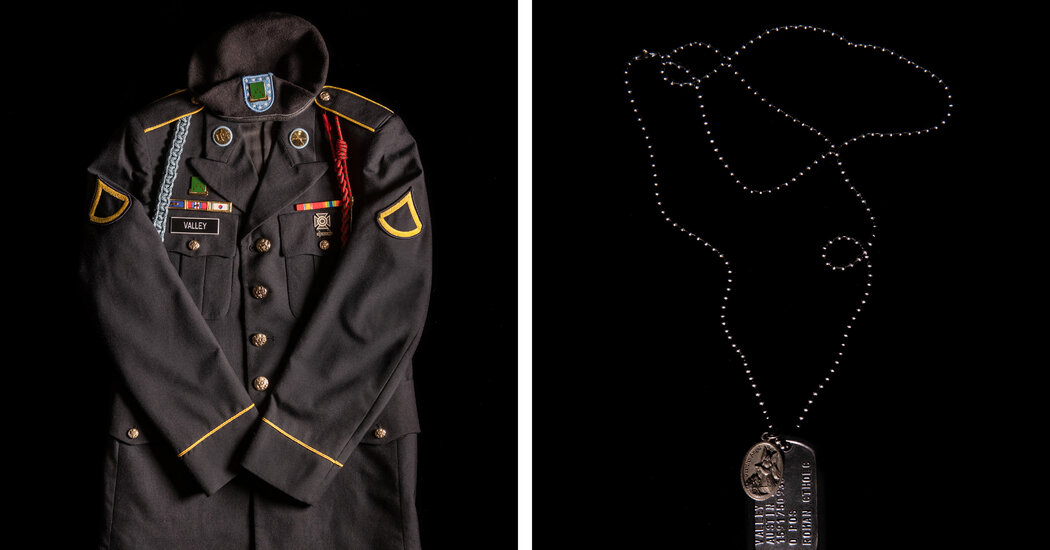
A Disaster of the U.S. Military’s Own Making
Austin Valley had just arrived at his Army base in Poland, last March, when he knocked on his buddy Adrian Sly’s door to borrow a knife. The base plate of his helmet was loose and needed fixing, he told Sly. The soldiers had spent most of their day on a bus, traveling from their former base to this new outpost in Nowa Deba, near the border with Ukraine. It had been a monotonous 12-hour journey with no stops and nothing to eat but military rations. Sly thought his friend looked exhausted, but then so did everyone else. He handed Valley an old hunting knife, and Valley offered an earnest smile. “Really appreciate it, man,” he said. Then he disappeared.
Listen to this article, read by January LaVoy
A boyish-looking 21-year-old, Valley grew up in a military family in rural Wisconsin and declared his intention to join the Army at age 7. He enlisted on his 18th birthday, so intent on a military career that he tried to sign a six-year contract until his father, a Gulf War veteran, persuaded him to take it more slowly and commit to three. Stationed at Fort Riley, in Kansas, he made an immediate impression on his superiors. “He was one of the best workers that I’ve seen in the military,” a squadmate says, recalling how Valley, who drove an armored troop carrier, thought nothing of crawling into its guts to check for broken parts, emerging covered in grease, a flash of mischief in his deep brown eyes.
Valley left Sly’s door and walked into the forest. A fresh snow had fallen, and the larch trees towered above him, their branches bare and ghostly. Valley carried the borrowed knife and some nylon cord he’d probably procured from another fellow soldier. He texted his parents: Hey mom and dad I love you it was never your fault.
Thirty minutes passed before Erik Valley, Austin’s father, saw the text. He called Austin’s cellphone several times but got only his voice mail. He contacted Austin’s unit at Fort Riley and eventually reached a sergeant; Erik explained the situation and forwarded Austin’s note. “Could someone please check on him and let me know what’s going on, please,” he said.
Word of a soldier’s disappearance spread quickly across the Polish base. Sly recalled sergeants pounding on doors and shining their flashlights. “Where’s Valley?” one asked him. Sly and several others from Valley’s unit took off into the woods. Seeing fresh tracks in the snow, one soldier followed them until he heard a faint gurgling sound. Drawing closer, he saw Valley, hanging from a tree. He was alive, but barely conscious. The soldier cut Valley down, while another called for the medics, who sped off with him into the night. His friends would never see him again. The following morning, Valley was taken to the U.S. Army hospital in Landstuhl, Germany, and then returned to Fort Riley. Four weeks later, he was dead.
